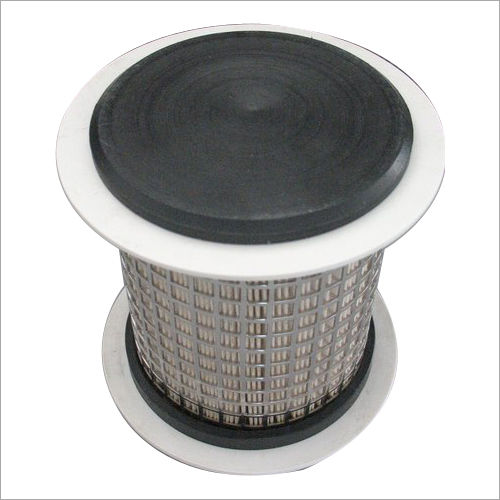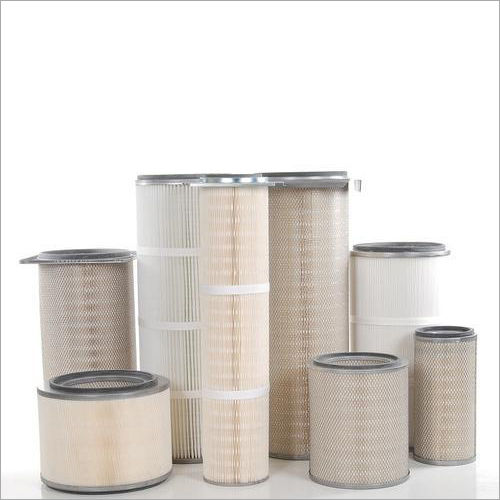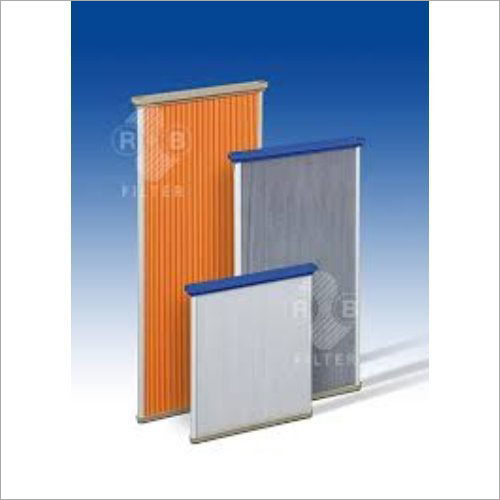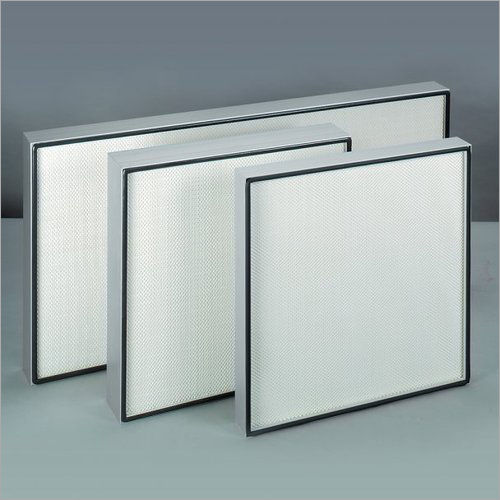GST : 24AADCR2517B1Z0

Push HEPA Filter
8000.0 INR
Product Details:
- Usage Industrial
- Condition New
- Material Polyester
- Size Standard
- Product Type HEPA Filter
- Warranty 1 Year
- Feature Good Quality
- Click to view more
X
Push HEPA Filter Price And Quantity
- 8000.0 INR
- 5 Number
Push HEPA Filter Product Specifications
- Standard
- Good Quality
- New
- Polyester
- Industrial
- HEPA Filter
- 1 Year
Push HEPA Filter Trade Information
- 35000 Number Per Year
- 1-2 Week
Product Description
We provide Push HEPA Filter which is constructed and tested under tight quality control settings in compliance with industry standards and are available in a variety of sizes. These filters are also available in a variety of configurations, including high- and low-temperature formats, as well as internal and external sealing. Push High Efficiency Particulate Air Filter is replaced by putting the used insert into the enclosed cell through its cylindrical housing for bagging and disposal. This filter is very effective as well as economical and safe to use.
Push HEPA Filter Applications:
- HVAC Systems: HEPA filters are used in heating, ventilation, and air conditioning (HVAC) systems to improve indoor air quality by capturing dust, pollen, mold spores, pet dander, and other airborne contaminants.
- Cleanrooms: Industries such as pharmaceuticals, biotechnology, electronics manufacturing, and aerospace rely on cleanrooms with HEPA filtration to maintain sterile environments and prevent contamination of sensitive processes or products.
- Hospitals and Healthcare Facilities: Push High Efficiency Particulate Air Filters are crucial in hospitals and healthcare settings to prevent the spread of airborne pathogens, bacteria, and viruses, including those responsible for diseases like tuberculosis, influenza, and COVID-19.
- Laboratories: Research laboratories, especially those working with hazardous materials, biological agents, or sensitive experiments, use HEPA filters to maintain clean and controlled environments free from contaminants.
- Industrial Processes: Many industrial processes generate airborne pollutants, such as dust, fumes, and particulates. HEPA filters are used in various industrial applications like manufacturing, machining, welding, and mining to protect workers and equipment from exposure to harmful particles.
- Aircraft and Automotive: Push High Efficiency Particulate Air Filters are increasingly being installed in aircraft cabin air systems and automotive ventilation systems to improve air quality and remove contaminants, providing a healthier environment for passengers and drivers.
- Residential Air Purifiers: Home air purifiers equipped with HEPA filters are used to remove allergens, pet dander, smoke, and other pollutants from indoor air, providing relief for individuals with respiratory conditions like asthma and allergies.
- Vacuum Cleaners: Many vacuum cleaners feature HEPA filters to trap fine particles and allergens, preventing them from being released back into the air during vacuuming.
- Nuclear Power Plants: Push High Efficiency Particulate Air Filters are utilized in nuclear facilities to capture radioactive particles and prevent their release into the environment during routine operations or in the event of accidents or emergencies.
- Biohazard Remediation: HEPA filtration systems are essential for biohazard cleanup and remediation projects, such as those involving mold remediation, asbestos abatement, or crime scene cleanup, to contain and remove hazardous airborne particles.
Push HEPA Filter FAQ:
Q. How does a HEPA filter work?
Ans: HEPA filters use a dense network of fibers to trap particles as air passes through. The fibers create a maze-like structure that effectively captures particles, including dust, pollen, pet dander, mold spores, and bacteria.
Q. What are the benefits of using HEPA filters?
Ans: HEPA filters improve indoor air quality by reducing airborne pollutants, which can alleviate allergy symptoms, asthma attacks, and respiratory issues. They are also essential for maintaining clean environments in industries such as healthcare, manufacturing, and laboratories.
Q. Where are HEPA filters commonly used?
Ans: HEPA filters are used in various applications, including HVAC systems, cleanrooms, hospitals, laboratories, industrial processes, residential air purifiers, vacuum cleaners, aircraft, automotive ventilation systems, and nuclear facilities.
Q. Are all HEPA filters the same?
Ans: No, these filters vary in quality and efficiency. True HEPA filters meet stringent standards set by organizations like the United States Department of Energy (DOE) and the European Union. Its essential to choose HEPA filters that are certified and appropriate for specific applications.
Q. Do HEPA filters remove viruses?
Ans: These filters can capture some viruses, including airborne viruses that are attached to particles larger than 0.3 microns. However, the effectiveness of HEPA filters against viruses may vary, and additional measures like proper ventilation and disinfection may be necessary to control viral spread.
Q. How often should Push High Efficiency Particulate Air Filters be replaced?
Ans: The replacement frequency of HEPA filters depends on factors such as usage, air quality, and manufacturer recommendations. Generally, HEPA filters should be replaced according to the manufacturers guidelines to maintain optimal performance.
Q. Can HEPA filters be cleaned or washed?
Ans: Its not recommended to wash or clean HEPA filters, as this can damage the fibers and reduce filtration efficiency. Instead, HEPA filters should be replaced when they become clogged or reach the end of their service life.
Q. Are HEPA filters noisy?
Ans: These filters can produce some noise, especially in systems with powerful airflow. However, noise levels vary depending on the design and specifications of the filter and the equipment its installed in.
Q. Are there alternatives to Push High Efficiency Particulate Air Filter?
Ans: While Push High Efficiency Particulate Air Filter are highly effective, there are alternative air filtration technologies available, such as electrostatic precipitators, activated carbon filters, and UV germicidal irradiation systems. However, HEPA filters are widely regarded as one of the most efficient methods for capturing airborne particles.
Superior Polyester Build
Each Push HEPA Filter is constructed using premium polyester material, ensuring durability and efficient particle capture. This robust design helps maintain airflow while filtering contaminants, making it suitable for demanding industrial settings.
Assured New Condition & Warranty
Our filters are provided strictly in new condition to guarantee consistent performance from the outset. With a 1-year manufacturers warranty, customers enjoy peace of mind and support throughout the filters operating life.
FAQs of Push HEPA Filter:
Q: How do I install the Push HEPA Filter for industrial use?
A: Installation is straightforwardsimply slot the standard-sized filter into your existing industrial filtration unit, ensuring a secure fit. Always refer to the equipment manual or consult with our technician for optimal results.Q: What makes this filter suitable for industrial environments?
A: The Push HEPA Filters construction from high-quality polyester ensures it withstands harsh industrial conditions, effectively capturing fine particles and contaminants, making it perfect for industrial air purification.Q: When should the HEPA Filter be replaced?
A: It is advisable to check the filter periodically, but under typical industrial usage, replacement is recommended at least once within the first year, or sooner if you notice reduced airflow or increased pressure drop.Q: Where is this filter manufactured and exported from?
A: These filters are designed, manufactured, and supplied from India, with exports reaching clients globally, ensuring global availability and prompt delivery.Q: What is the process for ensuring the products quality?
A: Each filter undergoes rigorous testing for quality assurance, focusing on particle retention, airflow efficiency, and construction integrity before shipment to guarantee optimal performance.Q: How can using a Push HEPA Filter benefit industrial environments?
A: By integrating these filters into your industrial facilities, you improve air quality, reduce maintenance on sensitive equipment, and create a healthier workspace, boosting productivity and ensuring regulatory compliance.Tell us about your requirement

Price:
Quantity
Select Unit
- 50
- 100
- 200
- 250
- 500
- 1000+
Additional detail
Mobile number
Email








